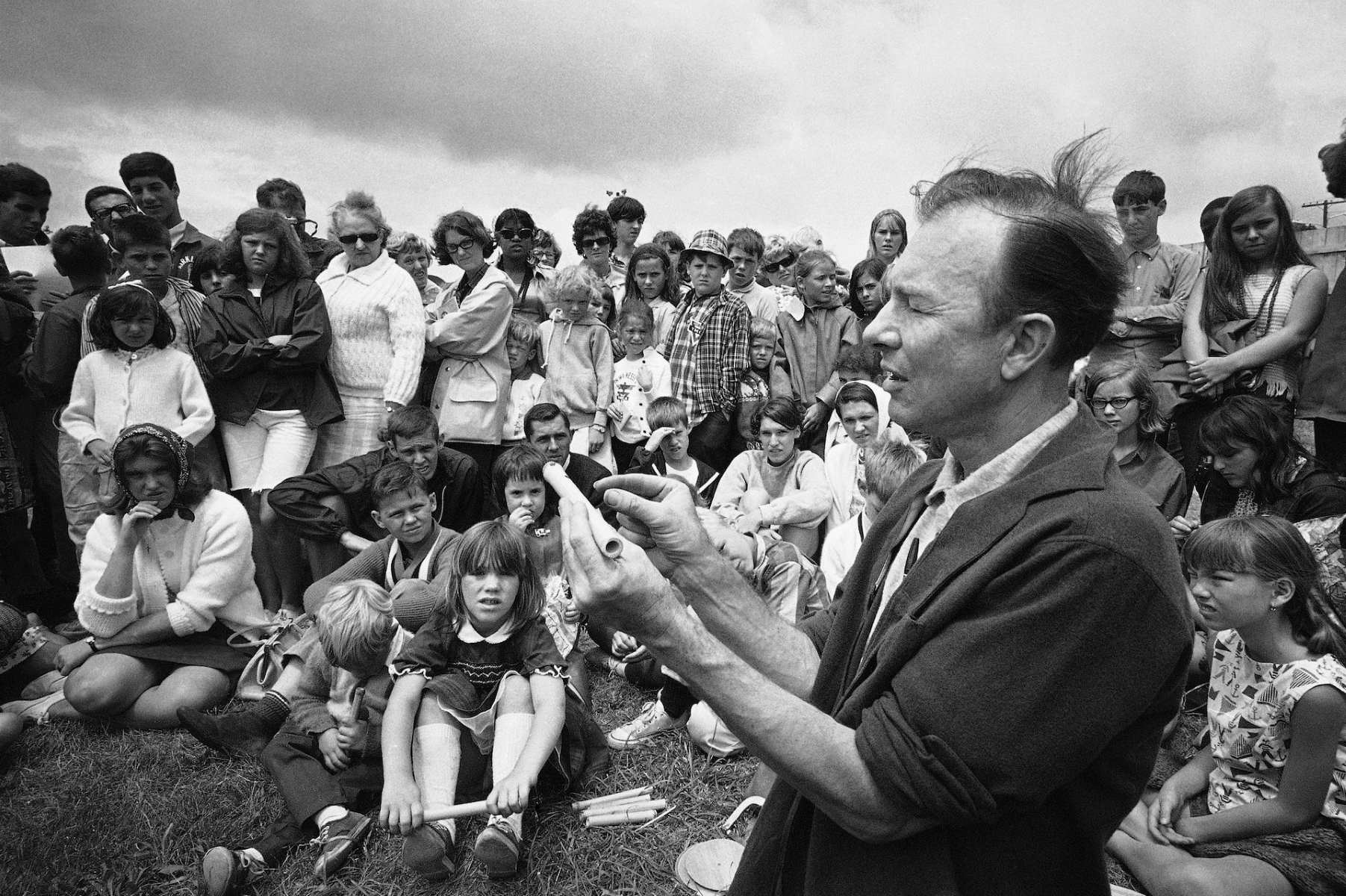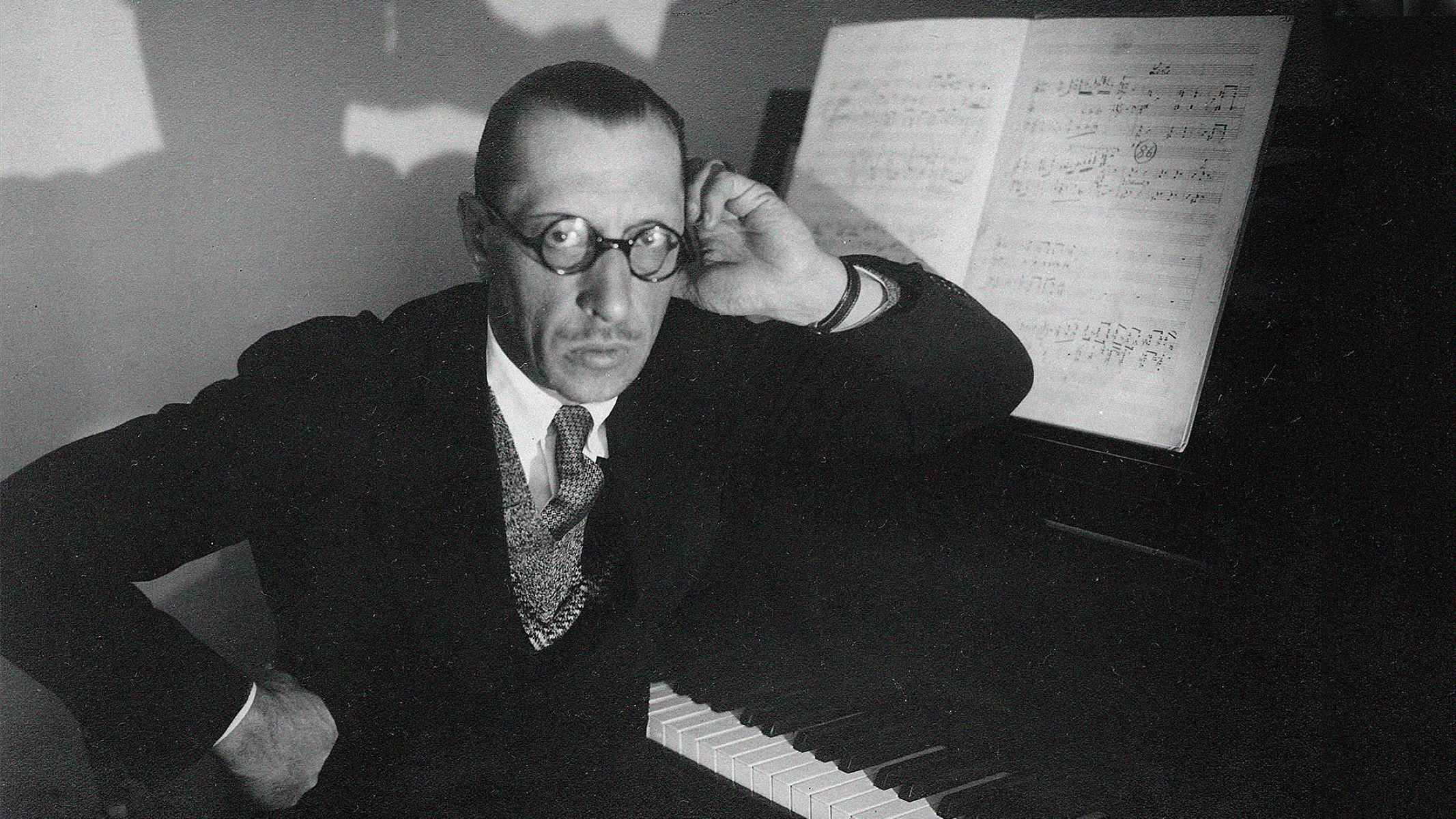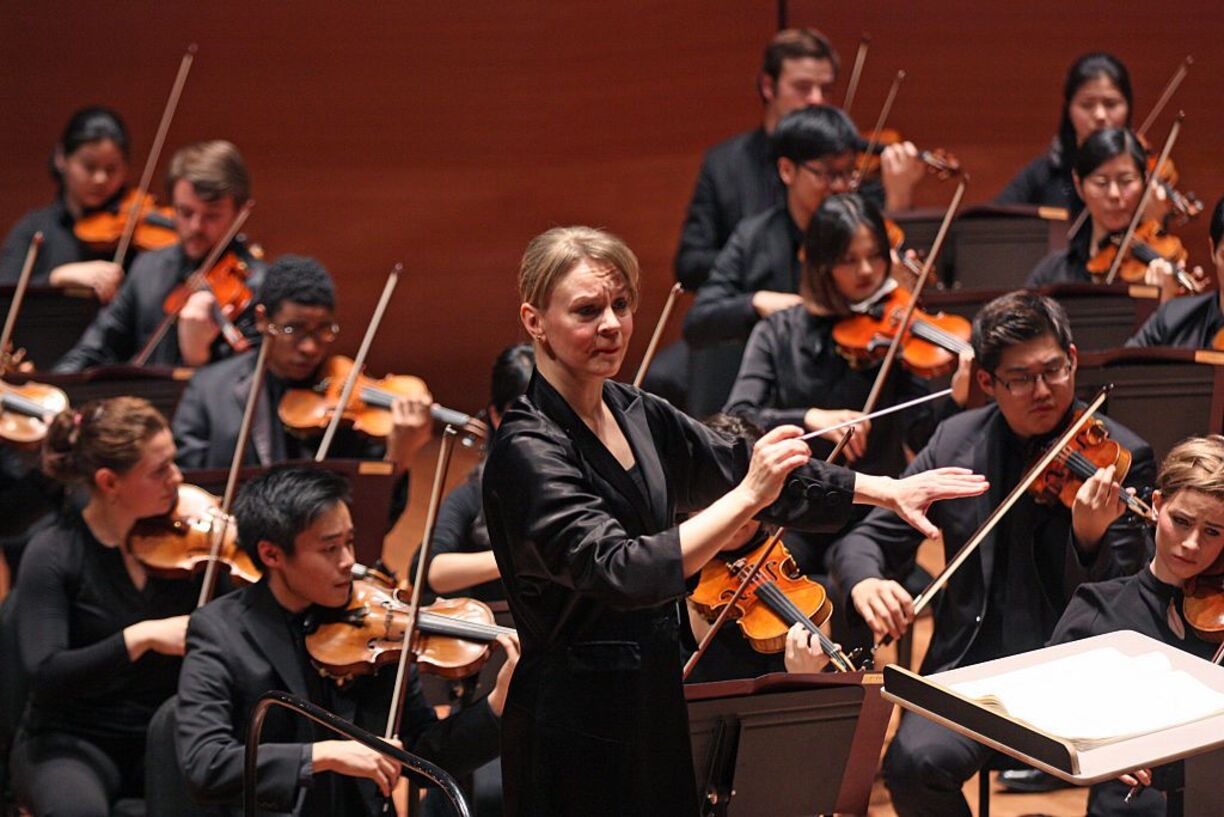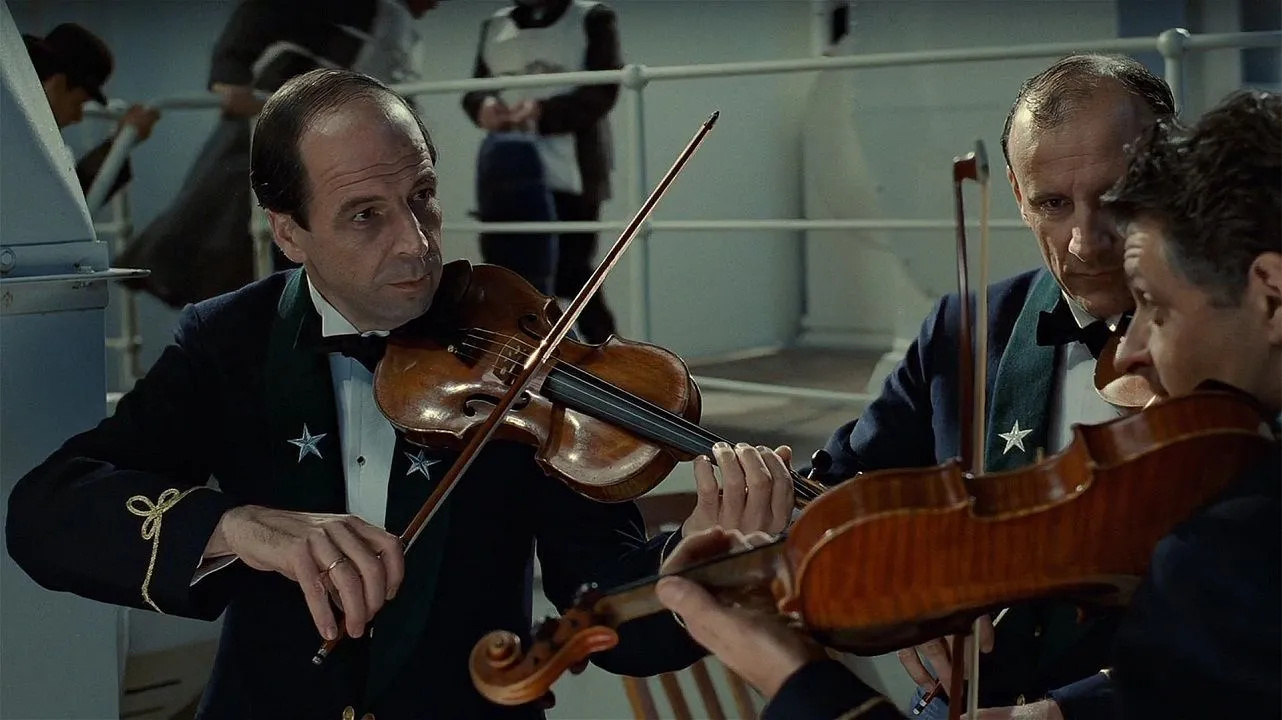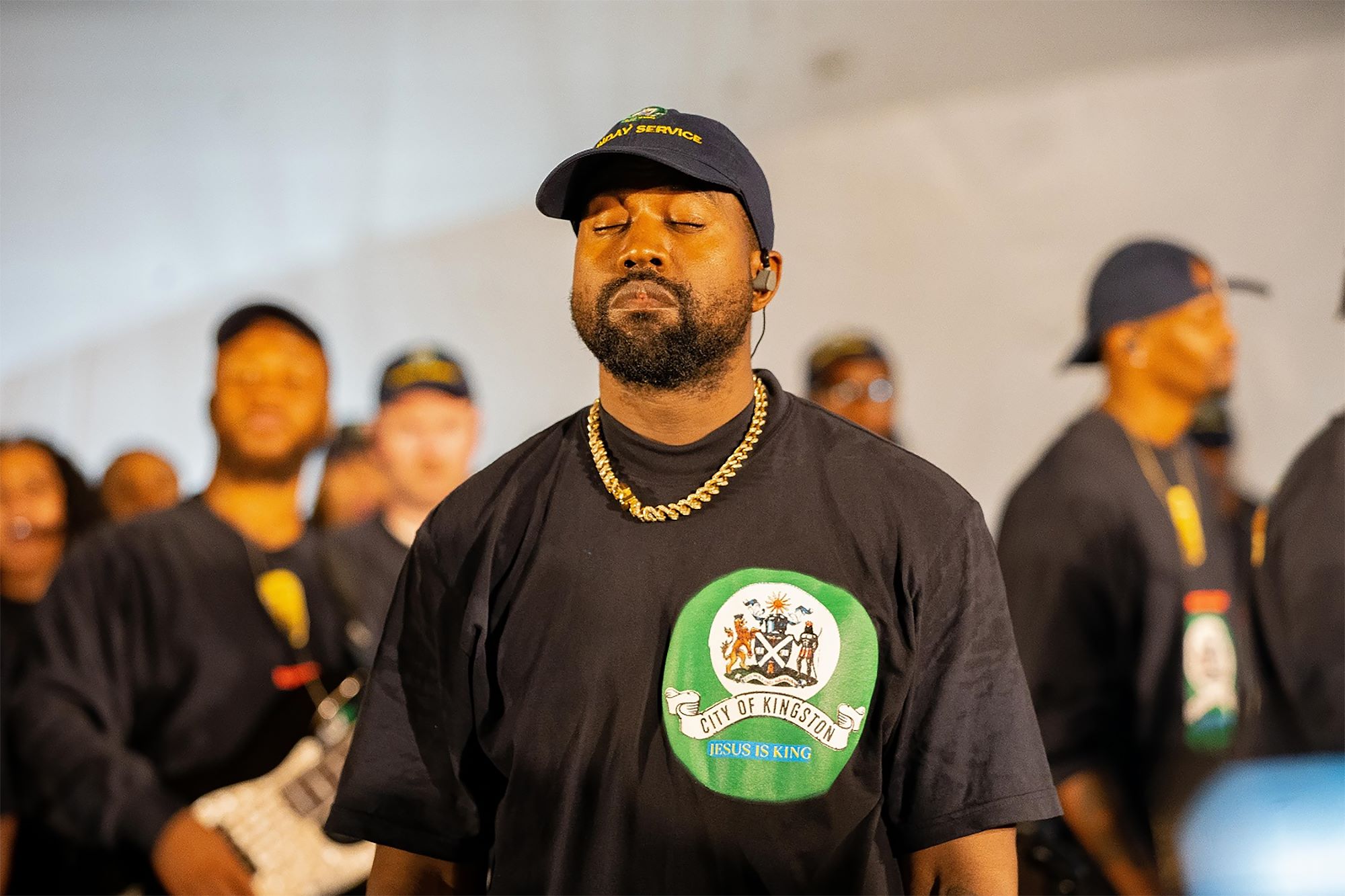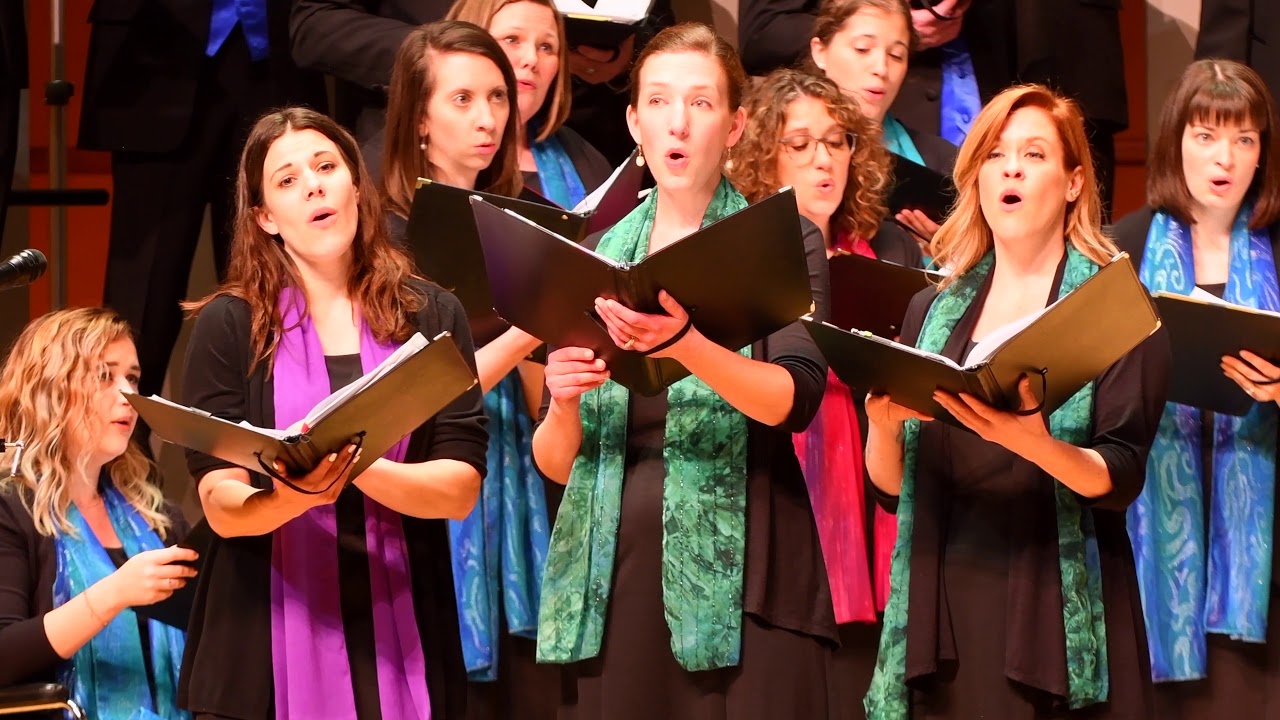Home>Genres>Folk>Why Did Romantics And Early Nationalists Investigate Folk Songs Folk Tales And Proverbs
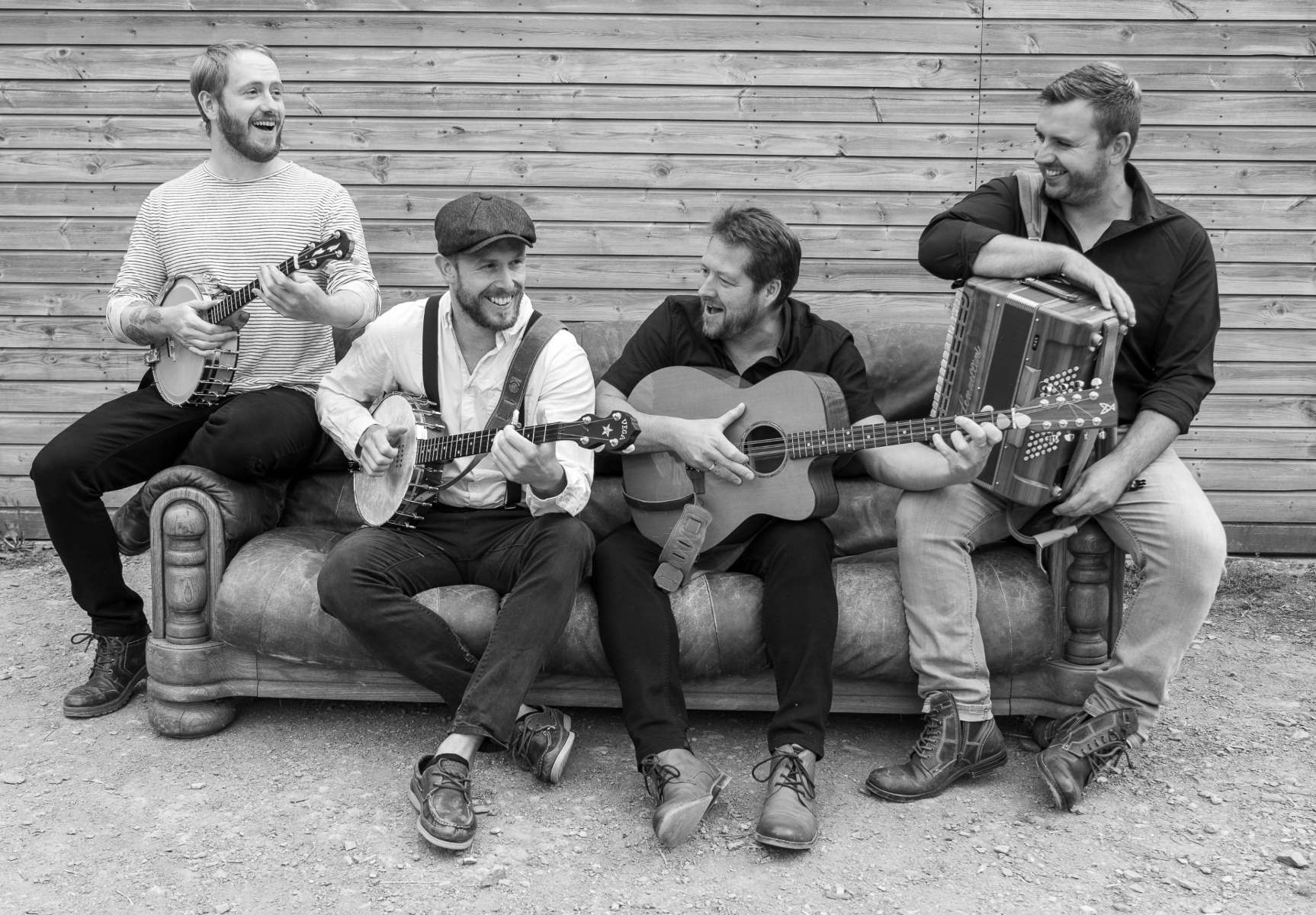

Folk
Why Did Romantics And Early Nationalists Investigate Folk Songs Folk Tales And Proverbs
Published: October 24, 2023
Discover why Romantics and early nationalists explored folk songs, tales, and proverbs to uncover the rich tapestry of cultural heritage. Dive into the world of folk traditions.
(Many of the links in this article redirect to a specific reviewed product. Your purchase of these products through affiliate links helps to generate commission for AudioLover.com, at no extra cost. Learn more)
Table of Contents
Why Did Romantics And Early Nationalists Investigate Folk Songs, Folk Tales, And Proverbs
Introduction
The exploration and study of folk songs, folk tales, and proverbs have long fascinated intellectuals, particularly during the Romantic movement and the rise of early nationalism. These cultural expressions, originating from the common people, offer a glimpse into the traditions, beliefs, and values of a community. They preserve the collective wisdom of generations and convey a sense of identity and belonging. The investigation of folk songs, folk tales, and proverbs by romantics and early nationalists served multiple purposes, such as promoting cultural heritage, understanding the roots of a nation, and seeking inspiration for artistic and literary creations.
During the Romantic period, which swept Europe in the late 18th and early 19th centuries, there was a renewed interest in the emotions, imagination, and natural beauty. Romantics sought to connect with the authenticity and purity of the past, which they believed could be found in the culture and folklore of the common people. They believed that folk songs, with their raw and heartfelt lyrics, were a direct representation of the human experience and could evoke deep emotions. Romantics saw folk songs as a means to reconnect with nature, express individual and national identities, and rebel against the constraints of societal norms. Thus, they embarked on an investigation of folk songs to capture the essence of the human spirit.
Simultaneously, the rise of early nationalism brought about a growing interest in defining and affirming the uniqueness of a nation’s identity. Folk songs, with their regional variations, dialects, and local themes, were seen as a rich source for understanding the distinct cultural heritage of different regions and communities within a nation. Early nationalists recognized the power of folk songs to unite people and strengthen a sense of national pride and unity.
Folk tales, on the other hand, fascinated both romantics and early nationalists for their ability to convey moral lessons, cultural values, and societal norms. These tales, passed down through generations, were seen as a treasure trove of wisdom and insight into the collective consciousness of a community. By investigating folk tales, romantics and early nationalists aimed to gain a deeper understanding of human nature, explore universal themes, and imbue their writings and art with the richness of these timeless stories.
Proverbs, with their concise and often metaphorical expressions, captivated intellectuals of the time. These pithy sayings offered insights into the common wisdom and practical knowledge of a community. Romantics and early nationalists sought to unravel the layers of meaning embedded within proverbs, using them to communicate complex ideas in a succinct and relatable manner. Proverbs were seen as a reflection of the cultural values and social dynamics of a society, enabling romantics and early nationalists to delve deeper into the essence of their nation.
In summary, the investigation of folk songs, folk tales, and proverbs by romantics and early nationalists served as a means of cultural exploration, self-expression, and understanding. These cultural expressions provided valuable insights into the essence of a community, its values, and its unique identity. The findings from these investigations not only fueled artistic and literary creations but also contributed to the development of national consciousness and pride. Join us as we delve deeper into the reasons behind the fascination with folk songs, folk tales, and proverbs during the Romantic movement and the rise of early nationalism.
The Romantic Movement
The Romantic movement, which flourished in Europe from the late 18th to the early 19th century, was characterized by a deep appreciation for emotions, imagination, and natural beauty. Romantics sought to break away from the rationality and conformity of the Age of Enlightenment and instead celebrated the individual spirit, intuition, and the power of the sublime.
One of the key aspects of the Romantic movement was the fascination with the culture and folklore of the common people. Romantics believed that the folk, with their close connection to nature and unfiltered expressions of emotion, were the carriers of authenticity and purity. They saw folk songs as a way to tap into the depths of human experience, to express universal emotions, and to connect with the natural world.
By investigating folk songs, romantics aimed to capture the essence of the human spirit. They sought inspiration in the raw and heartfelt lyrics, which often spoke of love, loss, longing, and the beauty of nature. Romantics viewed folk songs as a means of rebelling against the constraints of societal norms and expressing their individual and national identities.
Furthermore, the romantics saw folk songs as a way to reconnect with nature. The lyrics often drew inspiration from natural landscapes, seasons, and the cycles of life. Through folk songs, romantics sought to transcend the confines of urban life and embrace the untamed beauty of the natural world. They believed that by immersing themselves in the words and melodies of folk songs, they could awaken a sense of wonder, awe, and connection to the larger cosmos.
Overall, the exploration of folk songs during the Romantic movement served as a means for romantics to delve into the depths of human emotion, express their individuality, rebel against societal norms, and reconnect with the natural world. These songs became a source of inspiration and a way to evoke a sense of transcendence and authenticity in their artistic and literary creations.
The Rise of Early Nationalism
The 19th century saw the rise of early nationalism, a movement that sought to define and promote the unique identities of various nations. In this era, people began to identify themselves not only as members of their local communities or social classes but also as citizens of a particular nation with distinct cultural traditions, languages, and histories.
Early nationalists recognized the importance of preserving and celebrating the cultural heritage of their respective nations. They believed that by understanding and embracing their folk traditions, they could strengthen the sense of national unity, pride, and identity. As a result, the investigation of folk songs, folk tales, and proverbs became a crucial aspect of the early nationalist movement.
Folk songs played a significant role in early nationalist discourse. These songs often contained elements of regional dialects, unique melodies, and local themes that reflected the cultural diversity within a nation. By exploring and collecting folk songs from different regions, early nationalists aimed to showcase the rich tapestry of their nation’s cultural heritage. These songs were seen as vehicles for preserving and transmitting collective memories, values, and aspirations across generations.
Similarly, the investigation of folk tales became an important part of early nationalist efforts. Folk tales, passed down through oral tradition and often rooted in local myths and legends, were viewed as repositories of a nation’s collective wisdom and cultural identity. Early nationalists explored these tales to gain insights into the cultural values, moral lessons, and societal norms that shaped their nation’s character. By studying and disseminating these tales, they sought to strengthen the bonds of national unity and foster a shared understanding of what it meant to be a member of their nation.
Proverbs, with their concise and metaphorical expressions, also played a role in the early nationalist movement. These pithy sayings encapsulated the practical knowledge, social dynamics, and cultural values of a society. Early nationalists recognized that proverbs reflected the wisdom of the common people and carried within them the essence of their nation. By investigating and analyzing proverbs, they sought to unravel the layers of meaning embedded in these simple yet profound expressions, ultimately using them to communicate complex ideas in a relatable and impactful manner.
Overall, the rise of early nationalism fueled the investigation of folk songs, folk tales, and proverbs as a means of preserving and promoting a nation’s cultural heritage. It aimed to strengthen the sense of national unity and identity by embracing and celebrating the diverse traditions, language, and history of a nation. Through these investigations, early nationalists sought to weave together the threads of their nation’s shared experience, beliefs, and aspirations.
The Fascination with Folk Songs
One of the most captivating aspects of the investigation by romantics and early nationalists was the profound fascination with folk songs. These songs, born from the oral traditions of the common people, held a special allure due to their raw, heartfelt, and often emotionally charged nature.
Folk songs were seen as a direct representation of the human experience. Their lyrics spanned a wide range of themes, from love and longing to labor and social injustice. The simplicity of their melodies and the authenticity of their narratives resonated deeply with romantics and early nationalists, who saw in them an untamed expression of the human spirit.
For romantics, folk songs provided a means of reconnecting with nature. Many of these songs drew inspiration from the natural world, describing landscapes, seasons, and the cycles of life. Romantics believed that through folk songs, they could escape the confines of urban life and immerse themselves in the untamed beauty of the natural world. The emotional depth and lyrical imagery of folk songs allowed romantics to evoke a sense of wonder, awe, and connection to the larger cosmos.
Early nationalists, on the other hand, viewed folk songs as a valuable resource for understanding the distinct cultural heritage of their nation. These songs often featured regional variations, dialects, and local themes, reflecting the diversity within a nation. By investigating and collecting folk songs from different regions, early nationalists aimed to showcase the rich tapestry of their nation’s cultural traditions. They believed that folk songs could strengthen the sense of national pride and unity as people recognized their shared heritage and cultural identity.
In addition to their emotional and cultural significance, folk songs were also considered a source of inspiration for artistic and literary creations. The simplicity and authenticity of these songs appealed to the romantic sensibilities, allowing artists and writers to express their individuality and rebel against societal norms. By drawing inspiration from folk songs, they sought to infuse their works with the genuine emotions and the unfiltered spirit of the common people, creating art that resonated with a broader audience.
The investigation of folk songs by romantics and early nationalists was not merely an academic pursuit. It was a deep exploration of the human experience, a celebration of cultural heritage, and a means of seeking inspiration for artistic and literary creations. The raw emotions, connection to nature, and reflection of regional identities found in folk songs captivated the hearts and minds of romantics and early nationalists, leaving an indelible mark on the cultural landscape of their time.
The Exploration of Folk Tales
In addition to the investigation of folk songs, romantics and early nationalists also delved into the realm of folk tales and narratives. These timeless stories, passed down through generations via oral tradition, captured the imagination and fascination of intellectuals seeking to connect with the cultural roots of their respective nations.
Folk tales were seen as a treasure trove of collective wisdom and insight into the human condition. They were believed to contain moral lessons, cultural values, and societal norms that shaped the shared consciousness of a community. Romantics and early nationalists recognized the power and significance of these tales in understanding the essence of their nation and sought to explore and analyze them to gain a deeper understanding of human nature and universal truths.
The exploration of folk tales allowed intellectuals to transcend the boundaries of time and space, immersing themselves in narratives that spanned generations and cultures. These tales often featured archetypal characters, mythical creatures, and symbolic landscapes, offering glimpses into the deeper layers of human psyche and the collective unconscious. By delving into these stories, romantics and early nationalists aimed to tap into the universality of human experience and draw inspiration for their artistic and literary works.
Furthermore, folk tales provided a rich tapestry of cultural diversity within a nation. Different regions and communities had their own unique variants of folk tales, each reflecting their specific traditions, beliefs, and values. By exploring and collecting these tales, romantics and early nationalists aimed to showcase the cultural richness and diversity within their nation. This celebration of regional identities contributed to the development of a cohesive national narrative and a sense of belonging for individuals across different regions.
It is also worth noting that the investigation of folk tales was not limited to studying the content alone. Romantics and early nationalists were interested in the oral tradition itself – the act of storytelling and its social dynamics. They recognized that folk tales were not static entities but living, evolving narratives that were shaped by the storyteller and the cultural context in which they were shared. Studying the way these stories were told and transmitted served as a means of understanding the social dynamics, cultural exchanges, and the evolution of traditions within a community.
In summary, the exploration of folk tales by romantics and early nationalists served as a means of connecting with the cultural heritage, archetypal themes, and moral lessons embedded within these narratives. It allowed for a deeper understanding of human nature, the universality of human experience, and the cultural diversity within a nation. By investigating and embracing folk tales, intellectuals sought to unravel the layers of meaning and tap into the collective wisdom of their respective communities.
The Significance of Proverbs
Proverbs, with their concise and often metaphorical expressions, held a special significance for intellectuals during the Romantic movement and the rise of early nationalism. These succinct sayings encapsulated the practical wisdom, cultural values, and social dynamics of a community, making them a rich source of insights into the essence of a nation.
One of the main reasons for the fascination with proverbs was their ability to communicate complex ideas in a succinct and relatable manner. These pithy expressions were often passed down through generations and conveyed cultural wisdom and practical knowledge. Romantics and early nationalists recognized that proverbs could capture the essence of a society’s collective experience in a few words, making them powerful tools for communication and storytelling.
Proverbs were also seen as reflections of cultural values. Each nation had its own set of proverbs that encapsulated its unique worldview and guiding principles. By investigating and analyzing proverbs, intellectuals sought to unravel the layers of meaning embedded within these sayings. They believed that understanding the cultural context and social dynamics behind proverbs would provide valuable insights into the values and beliefs of a society, contributing to a deeper understanding of the nation’s identity.
Furthermore, proverbs were a way to connect with the common people. While folk songs and folk tales often required a certain level of artistic interpretation, proverbs were more accessible and relatable to a wider audience. They were used in everyday conversations, passed down orally, and understood by people across different social classes. Romantics and early nationalists recognized the power of proverbs to bridge the gap between intellectuals and the common people, allowing for a more inclusive exploration of the cultural heritage.
Proverbs also served as a source of inspiration for literary and artistic creations. The concise and metaphorical nature of these expressions sparked the imaginations of poets, writers, and artists. Proverbs provided a wellspring of ideas and themes that could be incorporated into their works, allowing them to communicate profound concepts in an accessible and relatable manner. By integrating proverbs into their artistic creations, intellectuals aimed to make their works more resonant with the common people and to imbue them with the cultural richness and wisdom embedded within these simple sayings.
In summary, the significance of proverbs lies in their ability to communicate complex ideas, reflect cultural values, bridge the gap between intellectuals and the common people, and inspire artistic and literary creations. The investigation of proverbs by romantics and early nationalists allowed for a deeper understanding of the cultural heritage, social dynamics, and guiding principles of a community. Through these investigations, intellectuals sought to uncover the layers of meaning within these concise expressions and tap into the collective wisdom of their nation.
The Purpose of Investigating Folk Songs, Folk Tales, and Proverbs
The investigation of folk songs, folk tales, and proverbs by romantics and early nationalists served multiple purposes, each contributing to a deeper understanding of cultural heritage, national identity, and artistic expression.
One of the main purposes was to preserve and promote cultural heritage. Folk songs, folk tales, and proverbs were considered the authentic expressions of the common people, reflecting their traditions, beliefs, and values. By investigating and studying these cultural expressions, romantics and early nationalists aimed to safeguard the rich tapestry of their nation’s cultural heritage and prevent it from being lost to the passage of time.
Furthermore, the investigation of folk songs, folk tales, and proverbs allowed for the exploration of national identity. Each region and community within a nation had its own unique variants of these cultural expressions, reflecting the diversity and regional identities within the larger national framework. Studying and analyzing these variations helped intellectuals to understand the different facets of their nation’s identity and to foster a sense of unity amidst diversity.
Another purpose was the quest for inspiration. Folk songs, with their raw emotions and unfiltered expressions, provided a rich source of inspiration for artistic and literary creations. Romantics drew upon the genuine and heartfelt lyrics of folk songs to infuse their works with authenticity and a connection to the human experience. Similarly, the archetypal themes and moral lessons found in folk tales served as a wellspring of inspiration for writers and artists, allowing them to tap into universal truths and cultural wisdom.
The investigation of folk songs, folk tales, and proverbs also had social and intellectual implications. These investigations allowed intellectuals to bridge the gap between the scholarly elites and the common people. By studying and valuing the cultural expressions of the common folk, romantics and early nationalists sought to create a sense of inclusiveness and recognition of the cultural contributions made by all members of society.
Moreover, the exploration of these cultural expressions played a role in the development of national consciousness and pride. By unearthing the roots of the nation in its folk traditions, romantics and early nationalists sought to deepen the sense of belonging and pride among their fellow citizens. By understanding the shared narratives and values embedded within folk songs, folk tales, and proverbs, they aimed to foster a sense of national unity and identity.
Overall, the investigation of folk songs, folk tales, and proverbs served the purpose of preserving cultural heritage, exploring national identity, seeking artistic inspiration, fostering inclusiveness, and nurturing a sense of national consciousness and pride. These cultural expressions provided a window into the traditions, beliefs, and values of the common people, connecting intellectuals with the collective wisdom and rich tapestry of their nation’s cultural roots.
Conclusion
The investigation of folk songs, folk tales, and proverbs by romantics and early nationalists during the Romantic movement and the rise of early nationalism had a profound impact on the cultural landscape of the time. It allowed intellectuals to delve into the depths of human emotion, preserve and promote cultural heritage, and explore the diverse regional identities within a nation.
The fascination with folk songs stemmed from the belief that they represented the raw and authentic expressions of the common people. The emotional depth and lyrical imagery found in folk songs allowed romantics to connect with nature, rebel against societal norms, and evoke a sense of wonder and awe. Early nationalists saw folk songs as a means of strengthening national unity and pride by showcasing the rich cultural tapestry of different regions.
The exploration of folk tales provided insights into the collective wisdom, moral lessons, and societal values of a community. These timeless stories allowed romantics and early nationalists to tap into universal themes, connect with the human experience, and understand the diversity of cultural narratives within their nation.
Proverbs, with their concise expressions and metaphorical wisdom, served as a bridge between intellectuals and the common people. The investigation of proverbs allowed for a deeper understanding of cultural values, social dynamics, and communication of complex ideas in a relatable manner.
Overall, the purpose of investigating folk songs, folk tales, and proverbs was multifaceted. It aimed to preserve cultural heritage, explore national identities, seek artistic inspiration, foster inclusiveness, and nurture a sense of national consciousness and pride. These investigations connected intellectuals with the collective wisdom, authenticity, and richness of their nation’s cultural roots.
The study of folk songs, folk tales, and proverbs by romantics and early nationalists continues to be relevant today. It allows us to connect with the traditions, beliefs, and values of our ancestors, fostering a sense of cultural continuity and pride. It also reminds us of the power of storytelling, the wisdom embedded in concise expressions, and the richness of human experiences that transcend time and borders.
As we delve into the fascinating world of folk songs, folk tales, and proverbs, let us embrace the wisdom of the common people and celebrate the diversity and unity that these cultural expressions bring to our lives.


